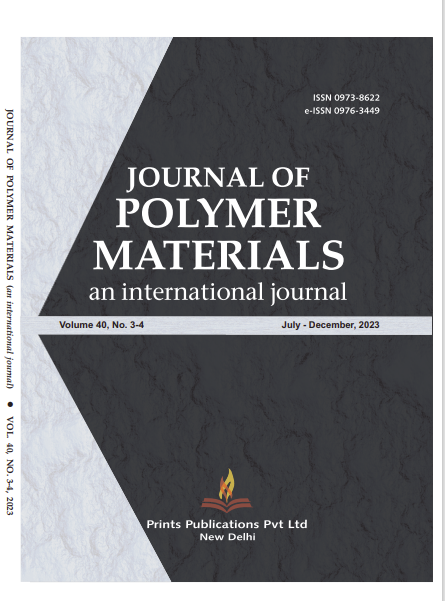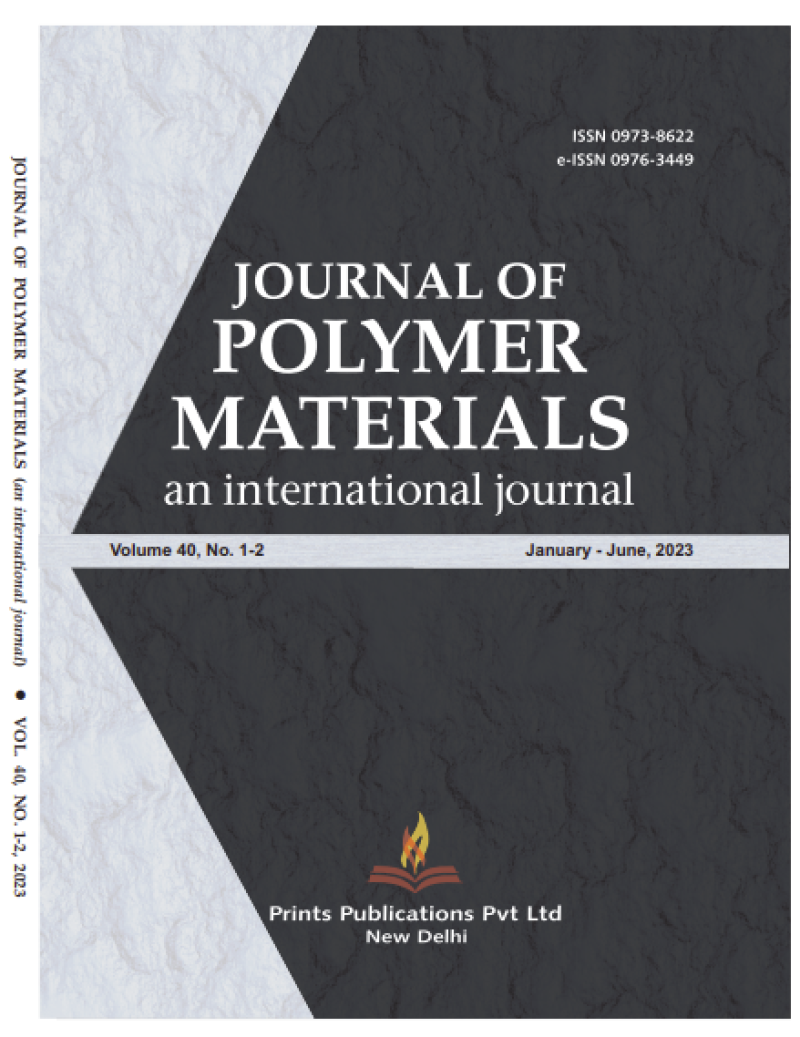Journal of Polymer Materials : An International Journal
Current Volume: 40 (2023 )
ISSN: 0973-8622
e-ISSN: 0976-3449
Periodicity: Quarterly
Month(s) of Publication: March, June, September & December
Subject: Chemistry
DOI: 10.32381/JPM
Taguchi Design of the Experimental approach to Increase the Biomass and Cell Wall Chitosan Contents of Zygomycetous Dimorphic Fungus Benjaminiella Poitrasii
By : S. R. Mane, E. K. Pathan, G. Patil, S. G. Tupe, V. Ghormade, B. P. Chaudhari, M.V. Deshpande
Page No: 219-230
Abstract
A dimorphic fungus Benjaminiella poitrasii contains high chitin/chitosan (35% of the cell wall) in the mycelial (M) form than its yeast (Y) form (20% of the cell wall). However, the relative proportion of chitosan is more in yeast form cells (chitosan: chitin ratio, 6:1) than mycelial cells (chitosan: chitin ratio, 3:1). Using the Taguchi design of experimental (DOE) approach, interactions among eight different parameters showed that carbon source (starch, 10 g/L), incubation time (48 h), inoculum (M and Y mixed 10%), yeast extract (6 g/L) and peptone (10 g/L), were optimum for maximum biomass production. Under these conditions, the chitosan yield from the mycelia was 60.89±2.30 mg/g of dry biomass, while from the yeast cells was 28.29±2.7 mg/g. The molecular weights of chitosan isolated from M and Y cells were 41.28 kDa and 21.72 kDa, respectively as measured by gel permeation chromatography. The degree of deacetylation of chitosans as 88.17-90.72% DDA measured by 1H-NMR. Furthermore, chitosans from M and Y cells inhibited the growth of plant pathogenic Fusarium oxysporum (MIC900.1 and 0.4 mg/mL) and Ustilago maydis (MIC900.4 and 0.8 mg/mL) at lower concentrations as compared to chitosan isolated from marine sources (MIC90 0.8 and >1.6 mg/mL).
Authors :
S. R. Mane
Biochemical Sciences Division, CSIR-National Chemical Laboratory, Pune-411008, India.
E. K. Pathan
Academy of Scientific and Innovative Research (AcSIR), Ghaziabad-201002, India.
G. Patil
Nanobioscience, Agharkar Research Institute, Pune-411004, India.
S. G. Tupe
Greenvention Biotech Pvt. Ltd., Pune-412202, India.
V. Ghormade
Nanobioscience, Agharkar Research Institute, Pune-411004, India.
B. P. Chaudhari
Biochemical Sciences Division, CSIR-National Chemical Laboratory, Pune-411008, India.
M.V. Deshpande
Greenvention Biotech Pvt. Ltd., Pune-412202, India.
DOI: https://doi.org/10.32381/JPM.2021.38.3-4.4



